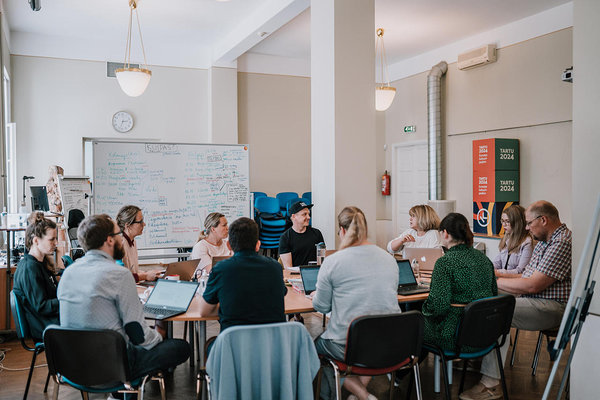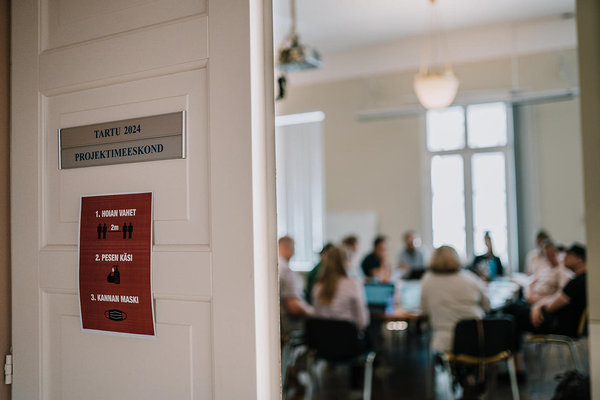Former RIGA 2014 director shares her experience with Tartu 2024 team
Diana Civle, former director of RIGA 2014 - European Capital of Culture foundation, was invited by the Tartu 2024 team to share her experiences as ECoC project manager, good practices and specificities of the Latvian capital cultural sector. This meeting was also the occasion for comparing working methods and cultural programmes of both organisations, in order to improve Tartu 2024 implementation.

Like many cities that receive the European Capital of Culture title, Riga 2014 established a separate organisation apart from city government – the Riga 2014 Foundation. The foundation’s artistic programme was managed by a committee of 6 curators, who supervised the events before and during the title year.
Diana Civle explained the importance of having an Artistic Board that helped the managers of different cultural activities, which happened throughout the title year. The Board had to be in contact with project managers and meet them regularly in order to create bridges between cultural managers and the ECoC central operating team. This council is one of the similarities between Riga 2014 and Tartu 2024.
However, unlike Tartu 2024, Riga 2014 ECoC Foundation decided to mainly focus on creating brand new events, rather than add existing ones into their programme. Tartu has decided to mix both new and regular events in its programme. According to Civle, creating new events permitted Riga to entirely renew its range of cultural events and to form new relationships between cultural actors.
Civle particularly insisted on the importance of including marginalised groups or people, who live far from the city cultural centers. The Riga 2014 approach was to start with neighbourhood cultural events, especially in the suburbs, and then gradually invite people to cultural events that they were not used to attending before.
According to Diana Civle, in addition to promoting the cultural life of a place to foreign people or tourists, the ECoC title also has a social role. The ECoC title is a “once in a lifetime opportunity” to create a rapprochement between the inhabitants of the city, regardless of where they live.
Diana Civle, who was the head of Riga City Government’s Department of Culture during the candidacy time, explained that the title year is also the occasion for foreign journalists to pay attention to the town, and that the ECoC status serves as a possibility for journalists to make investigations and discoveries about the city’s cultural life. Furthermore, international recognition can bring foreign artists into the ECoC programm.
Written by William Lagache
Tartu 2024 Foundation wants to thank Diana Civle, whose knowledge and experience was very helpful for our future program and organisation.


